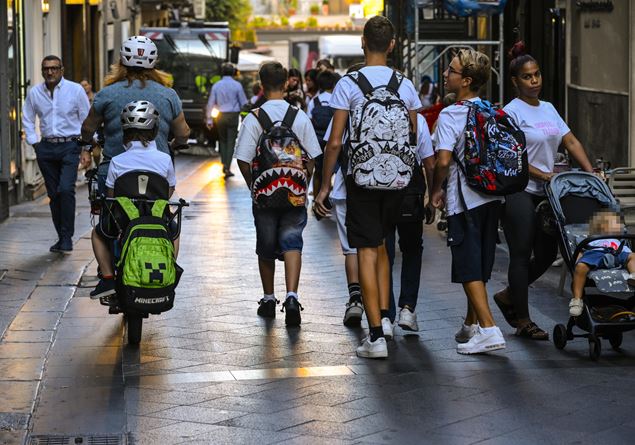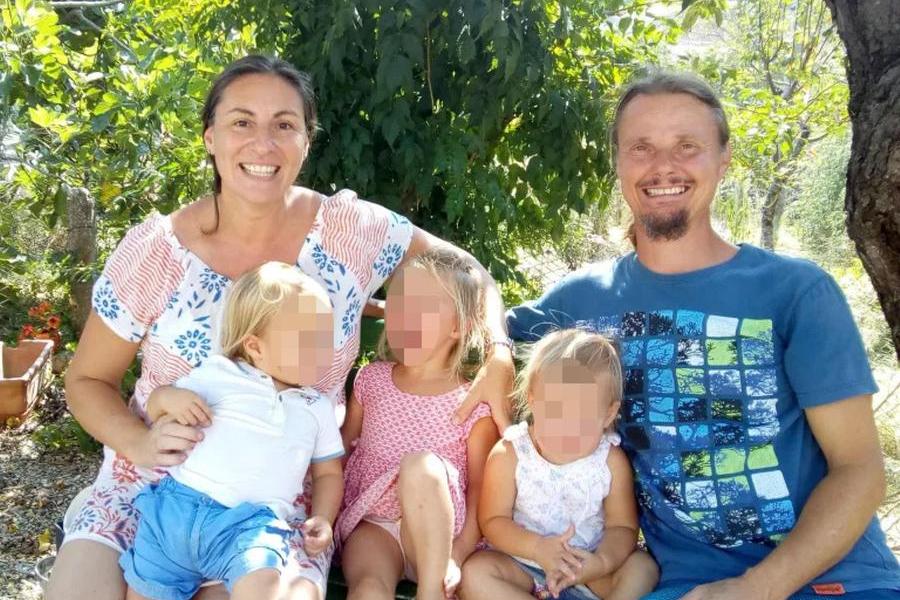Rosy Russo, president and founder of Parole O_Stili
Other than the “social generation”, as they are often superficially labeled, today’s adolescents experience a silent conflict every day between the constant fear of failure, the urgent need to be recognized in their own complexity and the search for alternatives and spaces of hope.
This is what emerges from the investigation conducted by Ipsos for theYouth Observatory of the Giuseppe Toniolo Institutewhich will be presented next October 18th during the panel “Emotions: beyond Inside Out. Giving voice to what the new generations feel”, as part of the third edition of “Words at School”, free training day aimed at teachers, parents, organized by Words O_Stili, association that for years has been committed to combating the phenomenon of violence of words off and online, with the Catholic University and the Giuseppe Toniolo Institute.
During the day we will celebrate the plurality of words and their power in the educational relationship. Through panels, lessons and over forty appointments, a critical reflection on the impact of artificial intelligence in teaching will be proposed (with the presentation of the project Patti Chiari)on the school-family relationship, on the conscious use of social media and smartphones by minors and on the important topic of school orientation.
The research, conducted on a representative sample of 815 Italian teenagers between 14 and 19 years old, through the methodology CAWI (Computer Assisted Web Interview), provides an in-depth and detailed picture of the relationship between young people, empathy, hope and attention to moral valuesaspects in psychology considered central to personal development and conscious participation in social life.
«The message that emerges from our study is that adolescents do not ask to be protected from every difficulty, but to be recognized in their efforts and to be listened to. They need reference figures and communities of meaning who know how to accompany them on their growth path, without reducing them to labels of “success” or “failure””, he explains Elena Marta, full professor of Social and Community Psychology at the Catholic University and member of the Scientific Committee of the Youth Observatory of the Toniolo Institute. «Behind the fragility there is also a desire for redemption and a future. Hope, supported by the ability to imagine alternative paths and internal motivation, represents the resource on which to work to build effective educational interventions to support our boys and girls.”
«These data don’t just talk about Generation Z, but also about us adults. They remind us that our gaze on them, the words we use, the trust we know how to convey make the difference. We often see them as fragile and disinterested but behind it there is a hidden treasure of sensitivity and desire to build the future that is waiting to be found”, he adds Rosy Russopresident and founder of Parole O_Stili, «it is our task to create spaces in which this value can emerge. But it’s not simple. Words at School – with the help of teachers, education and communication professionals – will try to be this: a support to those who accompany the youngest in their growth every day”.
Participation in Parole a Scuola is free and open to the public. To register and consult the complete program: 🔗 www.paroleostili.it/eventi/parole-a-scuola/programma
Here’s what emerged from the study.
-An exercise in hope: the kids want to make it
Hope, according to Snyder’s theory, is understood as a stable disposition that combines two aspects: the pathway dimension, i.e. the ability to imagine alternative ways to achieve one’s goals, and the agency dimension, i.e. the motivational force that supports the commitment to achieve them. Despite the often discouraging social climate, Italian adolescents maintain a good level of active hope (pathway) and internal motivation (agency) to achieve their goals. The averages recorded are 3.61 for the pathway dimension and 3.52 for agency, on a scale from 1 to 5. The data by age group is significant: the youngest (14-16 years) are more proactive (pathway average 3.66) compared to their older peers (3.54). However, no gender differences emerge.
-Failure is scary. Especially at school and especially to girls
The fear of failure is widespread and pervasive among adolescents. The average scores recorded range between 2.4 and 2.9 on a scale of 1 to 5, with the highest value linked to the fear of feeling shame and embarrassment after a mistake, followed by self-devaluation and the fear of disappointing significant others. The fear of becoming unpopular is less, but still present. Gender differences are marked: girls report higher levels of fear than their male peers. Age also has an impact: 17-19 year olds experience failure with greater intensity than 14-16 year olds, especially in relation to school, a context in which failure is perceived not as a circumscribed event, but as an overall judgment on one’s worth. School is perceived as a place of judgment rather than growth, where a bad grade can become a label rather than an episode.
-Hostile language as an emotional barrier
Language has an enormous weight in building self-esteem and identity among adolescents. Contemptuous comments, humiliating votes, phrases uttered online or offline can become microscopic daily violence, which leaves deep marks on one’s self-esteem. In this sense, school becomes a privileged observatory of how words act. A negative vote, a test gone wrong, can turn into labels that remain. Hence the difficulty in managing the error and the use, as a defense mechanism, of attitudes of indifference or arrogance. But behind the apparent disenchantment, the data reveal a great vulnerability: a need for educational languages capable of recognising, supporting and valorising.
-High school students are under more pressure than technicians and professionals
A counterintuitive fact concerns the perceived well-being based on the type of school attended. High school students seem to experience more pressure than those who attend technical or professional institutes. The reason? Greater expectations of success and less tolerance towards personal fatigue.
-Empathy and moral values: all is not lost
The research also analyzed how much importance teenage boys and girls attach to different moral principles, through the moral foundation relevance scale, which focuses on five dimensions. Against every stereotype, Generation Z demonstrates good levels of empathy and a strong attention to moral principles. The most heartfelt values are: “take care/do not cause harm” (4.61 out of 6), “justice (4.58 out of 6)”, “personal purity and integrity”, (4.51 out of 6). Girls and younger people (14-16 years) are the most sensitive to these values. Empathy – both affective (feeling with the other) and cognitive (understanding the other) – is also more developed in girls and younger people (14-16 years).










